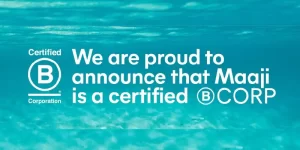Have you ever wondered if what you do to take care of the environment is enough? Well, it depends! If you’re concerned about addressing the root causes of ecological problems as well as their effects, then you’re on the right track! Deep ecology, or a philosophy of life that focuses on the root causes of environmental imbalances to offer real solutions, teaches us to build a better relationship with nature.
Let’s learn about the principles of this philosophy that are applicable to everyday life.
1. Deep ecology delves into the causes of ecological problems
Unlike superficial ecology, deep ecology delves into the true causes of ecological problems to find definitive solutions.
Have you noticed how attempts are made to remove plastics from the sea, while the rivers continue to dump waste into it? Or how recycling measures are implemented without reducing the generation of waste? In both cases, great efforts are invested in solving the consequences of a larger problem. Deep ecology, on the other hand, goes directly to the root of the problem: the source of the waste! With that in mind, here are some suggestions:
- Buy only what you need.
- Avoid using disposable items and containers.
- Compost your organic waste.
2. Deep ecology recognizes all living beings and nature
This way of thinking recognizes the value of all living beings and natural elements, regardless of their utility. Thus, water and animals are much more than resources at our disposal, so it is up to us to create new relationships with them. Let us learn to love in order to conserve! To do so:
- Learn about the water footprint of the products you consume and your daily activities.
- Show respect to the citizens of the ocean by not going to ocean amusement parks or dolphinariums.
- Do not buy items containing coral, tortoiseshell, shells, pearls, or shark parts.
3. Protect the planet at all costs and on all coasts!
Deep ecology, a philosophy of life, transforms our way of seeing the world, holistically combining spirituality, action, thinking and feeling. By knowing what lies beyond the surface, we reflect and, inevitably, empathy is awakened in us.
Deep ecology leads us to rethink our behaviors and actions – not to judge or shame ourselves, but to make more informed decisions and better habits. For example:
- If you are going to consume seafood products, make sure they come from certified farms or artisanal fishing (respecting the minimum sizes and closed seasons for each species).
- Celebrate without balloons and pyrotechnics, as they are very polluting.
- Reduce your emissions to mitigate global warming and ocean acidification – there are many ways to do it!
4. Deep ecology links environmental commitment with personal development.
Doesn’t seeking the best for the planet make us better human beings? Being responsible consumers, who work to minimize their environmental and social footprint, is an act of solidarity: we take care of each other and the planet we inhabit. Researching what is happening in the world and educating ourselves provides us with personal growth.
If we can organize our community to promote self-sustainability, don’t we come together for a noble purpose? Water conservation is another important facet of honoring the earth. Here are a few tips to conserve water:
- Learn about wastewater treatment in your community.
- Be careful what you pour down the drain: use biodegradable cosmetics and cleaning products, and collect used cooking oil for recycling.
- Use environmentally friendly suntan lotions and sunscreens.
If we enjoy the sea as grateful guests, it will be our best host. Deep ecology teaches us to love nature for what it is, in all its perfection, rather than for what it’s worth to each individual person.
Do you dare to find your own deep green style?
References
- Chargoy, R. (2017). Deep ecology: reconnecting with nature. University of the Environment.
- Cicin-Sain, B. (n.d.). Goal 14—Conserve and Sustainably Use Oceans, Seas and Marine Resources for Sustainable Development. UN Chronicle. United Nations.
- Endemic Magazine (2017). Principles of deep ecology.
- FAADA Foundation (n.d.). Dolphinariums – Problems associated with a life in captivity.
- Fischer, A. (2022). Excessive use of sunscreen on beaches is causing corals to emit more toxins than ever before. National Geographic.
- García, T. (2021). Fireworks also heat the planet. El País.
- Iglesias, E. (2009). Deep ecology. El Ecologista Magazine (nº 61).
- National Geographic (2023). Marine pollution: causes and methods of control.
- Oceana (2019). 10 things anyone can do to save the oceans!
- Parliamentarians for Global Action (n.d.). Campaign for the Protection of the Oceans and Implementation of Sustainable Development Goal 14.
- Suatoni, L. & Asokan, A. (2022). A Healthy Ocean for All: The Promise of 30×30 for California. Natural Resources Defense Council.
- U.S. Environmental Protection Agency (2022). Learn; Beach Basics.
- Wah, D. (2019). Deep ecology: towards an ecological consciousness.
- Xia, R. (2021). How polluted is your favorite California beach? Read this report card. Los Angeles Times.




